
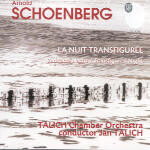
Jan Talich, son of the late Vaclav Talich and the first violinist of the second-generation Talich Quartet, leads his own chamber orchestra on this recording.
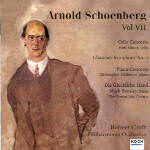
Volume 7 of Robert Craft’s ongoing Schoenberg cycle makes an excellent introduction to the composer’s almost schizophrenically wide-ranging body of work. For example, there’s his

What happens when you alternate Schoenberg’s three Klavierstücke with Schubert’s Three Klavierstücke D. 946? Do you get meaningful, revelatory juxtapositions of style that make you
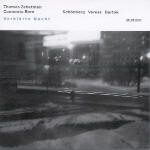
Bartók and Schoenberg, passionate perfectionists both, would have loved this disc. Both the Divertimento and Verklärte Nacht receive extraordinary performances, played with an astonishing mixture
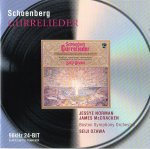
This recording of Schoenberg’s Gurrelieder was made at Boston’s Symphony Hall in April, 1979. A distinguished cast of soloists headed by James McCracken (Waldemar), Jessye
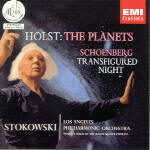
Stoki’s Planets doesn’t monkey around with Holst’s orchestration as much as might be expected: a tam-tam crescendo at the end of “Mars”, some fiddling in

This Gurrelieder stems from a live performance (as most do) recorded in Copenhagen in 1968. A marvelous set of soloists was assembled for the occasion,
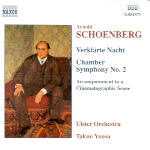
This is one those discs that I feel are best played from start to finish. The program begins with the fretful, almost despairing, yet strangely
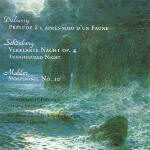
This is one of the best examples of mood programming I’ve ever seen. The gentle, exotic strains of Debussy’s Prelude to the Afternoon of a

Michael Gielen has a solid reputation as a conductor of Bruckner and Mahler, and this new Resurrection Symphony upholds it handsomely. His reading of Symphony
![]()
